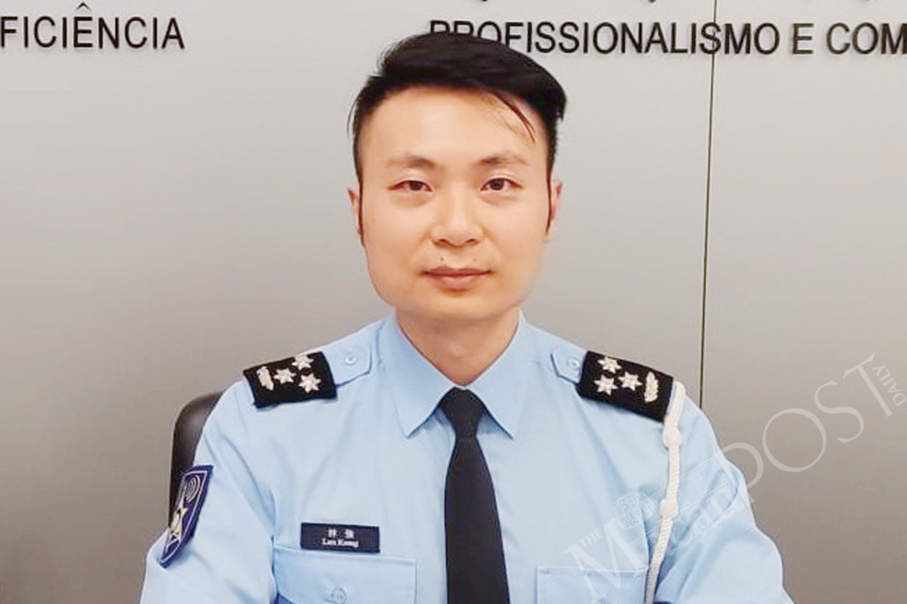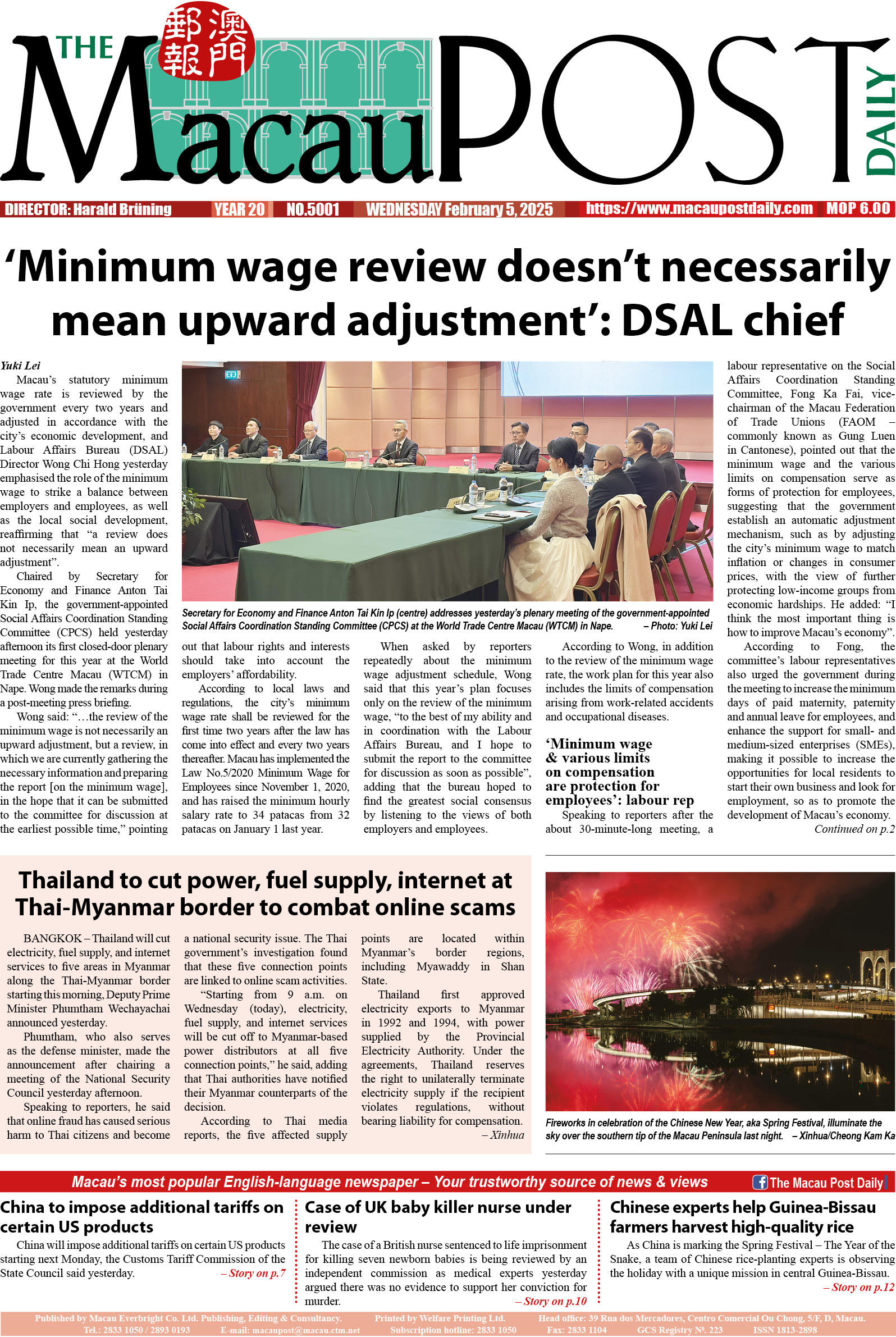Interview by Rui Pastorin
Macau’s Mosque and Cemetery sits on Ramal dos Moros facing the Outer Harbour Reservoir.
The complex is tranquil and peaceful, surrounded by trees that may be hundreds of years old, while five to six types of fruit grow on the bucolic plot of land during the summer.
The mosque is the only one in Macau.
“Many people love this place. Even non-Muslims, they come and sit here”, Imam Ding Shaojie, who is originally from Inner Mongolia but lived in Beijing before coming to Macau, told the Post on Monday in his office at the complex, noting that the area is “the best” in terms of location as it is very quiet, a place where one can listen to the sound of birds chirping.
A small mosque stands in the middle of the premises. A mosque is believed to have been built there by Muslims who arrived with the Portuguese army, while renovation of its present-day incarnation was completed in the 1980s, according to the Muslim2China website, with Imam Ding, who has been in Macau for five years, pointing out that it can accommodate up to 50 people.
But this poses a problem: it is not big enough to accommodate Macau’s now expanded Muslim community, with around 150 men attending prayers on Fridays and a few hundred Indonesian women who come to study, learn and pray on Sundays, Imam Ding underlined.
Moreover, the city might count at least 11,000 Muslims, 10,000 of whom are foreign Muslims while around up to 1,000 are locals, i.e., about 1.6 percent of the population, according to an estimate by Imam Ding, but he was quick to add that these are numbers from previous years
During two official Islamic celebrations, Eid Al-Fitr (Holiday of Breaking the Fast) and Eid Al-Adha (Feast of the Sacrifice), Imam Ding said that there are big congregations that comprise men and women of all ages, bringing together around 1,050 people, and so requires prayers to be separated into at least three different sessions, which also includes the preparation of food. “It cannot accommodate all people coming to prayers”.
Given the mosque’s tiny space, prayers have to be outdoors. “With 1,050 per session, how can you accommodate so many people?”, Imam Ding asked rhetorically. These past few years, Imam Ding said, the celebrations have taken place when it is rains frequently, and heavy rain has affected many who come for prayers. “This is the main problem. We need a suitable mosque that can, first of all, accommodate enough people and, secondly, is ‘safe’ so that even on rainy days we can pray.”
“A new mosque was supposed to be built at least 10 years back”, Imam Ding said, adding that he had heard that the project could start this year, as last year engineers and representatives from government entities came to take measurements and to study where the trees could be relocated. Consequently, Imam Ding said, he believed that a new mosque could be built very soon.
The new mosque, which will be built in the same area, must include basic facilities such as ablution (washing ritual) areas for purification before prayers; separate prayer halls for men and women; a kitchen and a dining hall to cook and distribute food to people coming for prayer, which the current facilities do not have and, therefore, the faithful must instead cook outside; and a library.
A classroom to teach people about Islam is also needed, Imam Ding added, as from time to time, many associations come to the mosque to listen to lectures about the Islamic culture and due to his office’s limited space, it cannot accommodate more than 30 people. Consequently, associations need to come separately and are even divided into groups.
There is no set date for when the new mosque will be built, Imam Ding said, adding that all Muslims staying in Macau are expecting to have a mosque that enables them to say their daily prayers, while those coming to the city hope to see a mosque like in their Islamic countries. “At least it can have a good design and can accommodate enough people for prayers”.
The need for more halal options
Meanwhile, Ding also talked about the predicament of the very few halal restaurants in Macau, noting: “In Macau, it is very difficult for the Muslim community to live here in terms of the food”.
Halal (Arabic for “permissible”) means food that is fit to eat in line with Muslim religious customs, according to Wiktionary.
He recalled instances when Muslim visitors would have to bring their own food such as bread with them when visiting Macau. With very few or a limited number of restaurants selling halal food for Muslim visitors, it is a big issue, Imam Ding pointed out, adding: “The Macau government needs to give some convenience for the people to open halal restaurants” or encourage Muslims from overseas to open them here.
“Since Macau will become an international city to receive, for example, guests from Indonesia, Malaysia and other Islamic countries, there must be at least some halal restaurant standards and enough space”, he concluded.
Imam Ding Shaojie poses in front of his office at the Macau Mosque and Cemetery on Ramal dos Moros on Monday. – Photos: Rui Pastorin
This photo taken on Monday shows the interior of the Macau Mosque.





